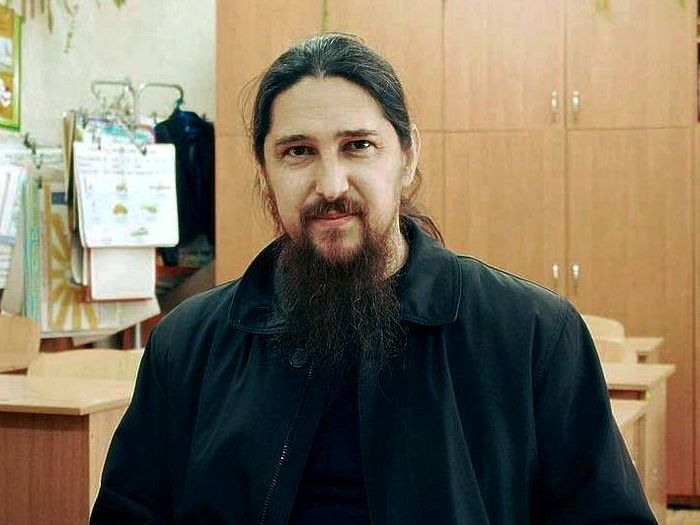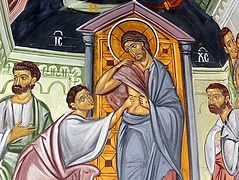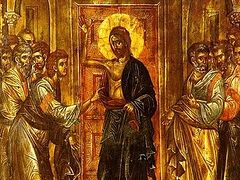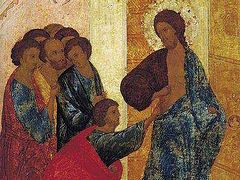Last Sunday was dedicated to the memory of the apostle Thomas who doubted in the Resurrection of Christ. His doubt served for the glory of God. We decided to ask our pastors in which situations doubt or skepticism can be a virtue, and in which not?
Don’t rush to consider yourself worthy of a miracle
I’ll answer briefly. The Holy Fathers have a spiritual rule: If you encounter a miracle or sign you don’t understand, then neither accept nor deny it, but keep yourself aloof. You’ll only be praised for vigilance. Otherwise, rushing to accept the miracle, you could find yourself in the webs of the seducer. It’s not skepticism, but spiritual caution, prudence. In this sense, don’t rush to consider yourself worthy of a miracle or specifically look for signs in your life from above—these are given by God, but rarely.
So be skeptical of that which could somehow highlight you among other people, emphasize your “specialness:” Such a highlighting of yourself is a path to self-delusion. But accept the vision of your sinfulness, your mistakes, weaknesses, and falterings, without any doubts.
Such a vision is clearly true, so we mustn’t doubt in our unworthiness and our mistakes. The path of the vision of our own sins and, of course, of repenting of them leads to humility, and by way of humility—to unity with the Lord.
Humility and selfless faith unite us to Divine Truth
Strictly speaking, from an ecclesiastical point of view, doubts and skepticism are appropriate in everything that is clearly contrary to Church teaching about our salvation, and contrary to the fullness and purity of the Orthodox faith. Here it’s not even skepticism that is necessary, but vigilant and steadfast resolve in rejecting all teachings, opinions, and judgments, no matter how “plausible” they may seem, if they contradict the teaching of the Church.
But for this, we must know and understand Church teaching and separate that which is professed by the fullness of Orthodoxy from that which is an expression of people’s private judgments, even of those who are enlightened (that is, Churched people) but able to be mistaken, like anyone. And all the moreso, I repeat, we must be cautious with the judgments of non-Church people. There are many such people, and even sometimes educated and intelligent, even considering themselves Orthodox and able to coherently expound their thoughts. But the trouble is precisely in that these people, with all of their merits and talents, do not want to recognize the importance of the simplest, but necessary condition for life in Christ—humility. It’s difficult for such people to accept in simplicity what the Lord reveals about Himself and about us in the bosom of the holy Orthodox Church. These people, taking something from general Church teaching, doubt something and begin to “interpret” in their own way that which was already explained long ago by holy men and accepted by the fullness of the Church.
In the sense of a sober and critical attitude to all kinds of non-Church opinions, and also to opinions expressed within the Church that are not shared by its fullness, skepticism and doubt can be a virtue. As for that which concerns the blessed fullness of Orthodoxy, we are required to have a whole sacrificial and active faith, the fruits of which in themselves will testify to the truth, because it is such a faith—humble and sacrificial—that unites us to the highest Divine Truth.
Skepticism should have a limit
We read: “Skepticism is a critical-suspicious attitude to something.”
The beginning of the Gospel of John immediately comes to mind. The future apostle Nathaniel doesn’t believe Philip’s declaration and desires to see the One they’re calling the Christ with his own eyes. Jesus sees Nathaniel coming towards Him and says of him: Behold one truly an Israelite, in whom there is no guile. Nathaniel tests Christ: Why do you say that; how do You know me? And only after being convinced of Philip’s rightness does he unconditionally become a disciple of Christ.
Or Thomas: He sees his friends rejoicing. With one voice they declare: “The risen Lord has just arrived”—but he doubts. “That can’t be,” says Thomas, “and until I touch His wounds with my own hands and verify that they are genuine, I will remain in doubt.” And the Lord allows Thomas to make sure that it’s really Him.
For a Christian to be a skeptic isn’t the worst quality. Why not? Any one of us should be able to “turn on our heads” and live by our own minds. Christians have absolute authorities: Sacred Scripture and the spiritual heritage of the Fathers, whose experience is confirmed by time and recognized by the fullness of the Church. It’s a kind of tuning fork that allows you to adjust your own spiritual life. No matter what anyone advises you, before you accept it, compare with it with the Word of God. Find out what the Fathers said about it. If the advice has the logic of Orthodox teaching, carry it out. If not, then think hard about it. Otherwise, you could easily get into trouble.
On the other hand, skepticism should have a limit and not extend to the Person of the Savior Himself, the Mother of God, and the teachers of the Church. Otherwise, there will be the temptation to doubt the authority of the experience of the holy ascetics, and in the end, the risk of going astray from the correct spiritual path. Rejecting the authority of the Mother of God and her role in the work of salvation of mankind, you yourself won’t even notice how you’ll end up outside the saving enclosure of the Church. And you will roll on along until one day you will say to Christ Himself: “And Who are You?!”








